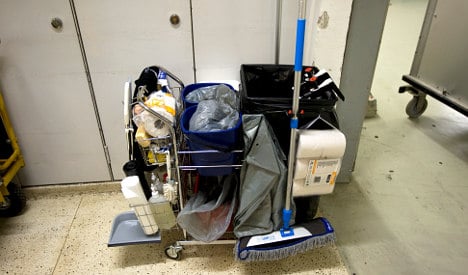Joanna Renclawowicz, 34, drew the ire of some of her workmates for regularly speaking Polish with colleagues in the canteen and corridors of the hospital in Skien, newspaper Dagbladet reports.
In a letter terminating her contract, she was told: ”You have received info that only Norwegian is to be spoken during work hours.
”Your colleagues and patients at the hospital have repeatedly complained of Polish being spoken in the dining room, the central cleaning department, and in corridors, etc.”
Renclawowicz has now launched legal proceedings against the hospital for unlawful termination.
Her lawyer, Sebastian Garstecki, has also reported the hospital to the Equality and Anti-Discrimination Ombud, noting that the government agency has previously deemed language directives of this kind to constitute discrimination.
Renclawowicz explained that a handful of her co-workers at the hospital were originally from Poland, including one of her old friends from Warsaw.
”It was just strange that we were expected to speak Norwegian to each other on our breaks when we’re not that fluent. We always tried to speak Norwegian with the Norwegian employees,” she said.
”Every time the boss heard one of us speaking Polish, she said: ’Speak Norwegian!’ Her complaints came especially if it happened during lunch breaks,” Renclawowicz told Dagbladet.
In January, she said, her manager even took to posting notes around the cleaners’ quarters to remind staff that: ”At work, we speak Norwegian”.
The college-educated 34-year-old said she and her husband had moved to Norway four years ago to seek a better life for their family. They now have a three-year-old daughter.
”We have a child and a mortgage, so I was devastated when I got the sack,” she told Dagbladet.
A spokesperson for her former employer said the hospital planned to meet with trade union representatives on Wednesday to discuss a possible resolution.
Lawyer Garstecki, meanwhile, said his client’s aim was not to seek a large compensation settlement.
”She wishes to prevent others from being treated this way. We’re hoping for a constructive resolution to the dispute, but if the hospital is not willing, then the case will go to court,” he told Dagbladet.



 Please whitelist us to continue reading.
Please whitelist us to continue reading.
Member comments